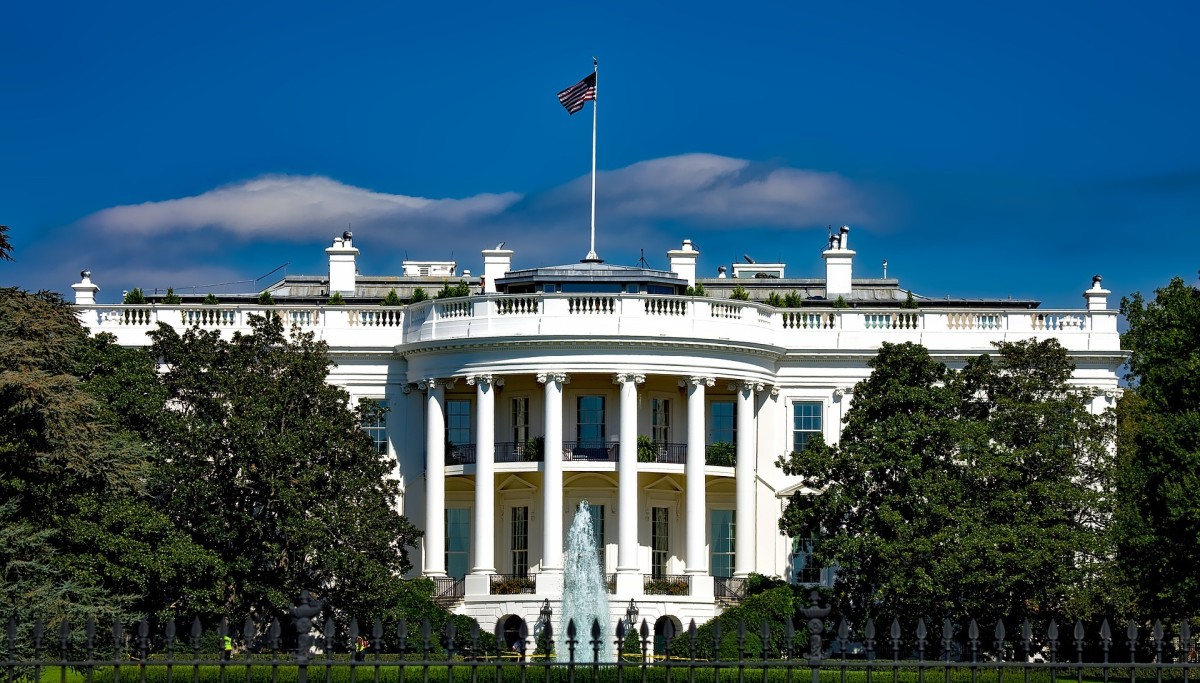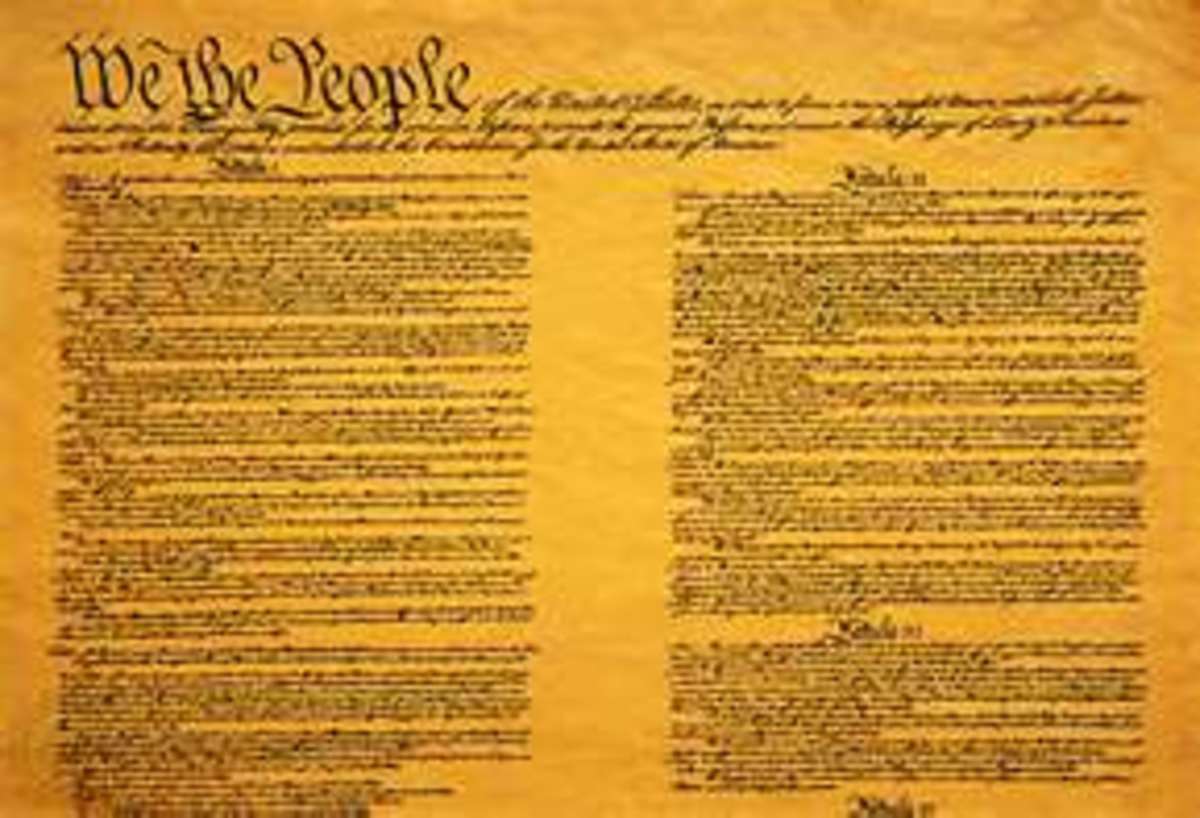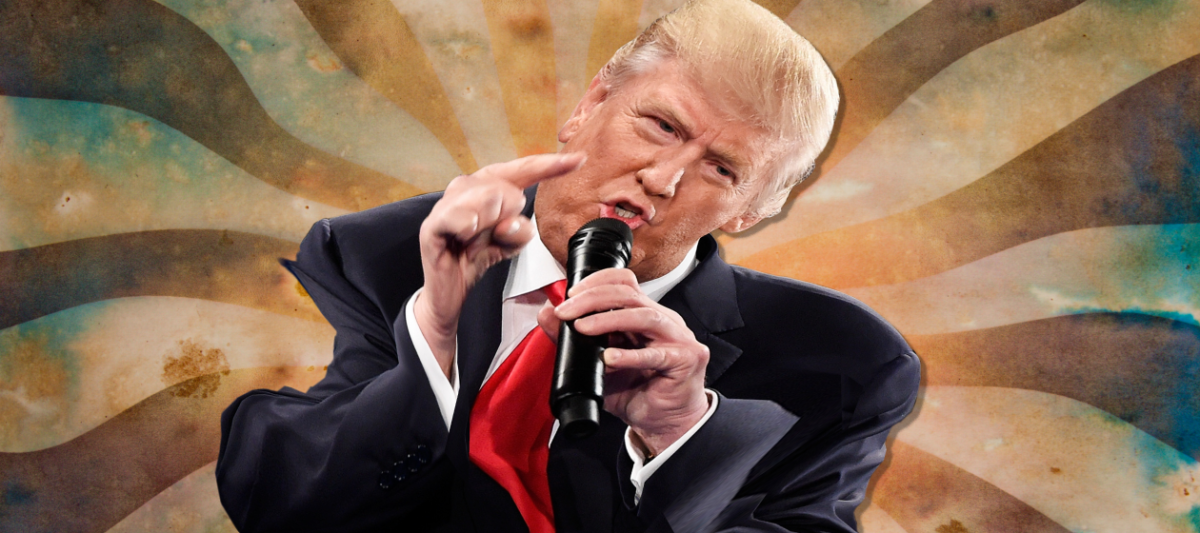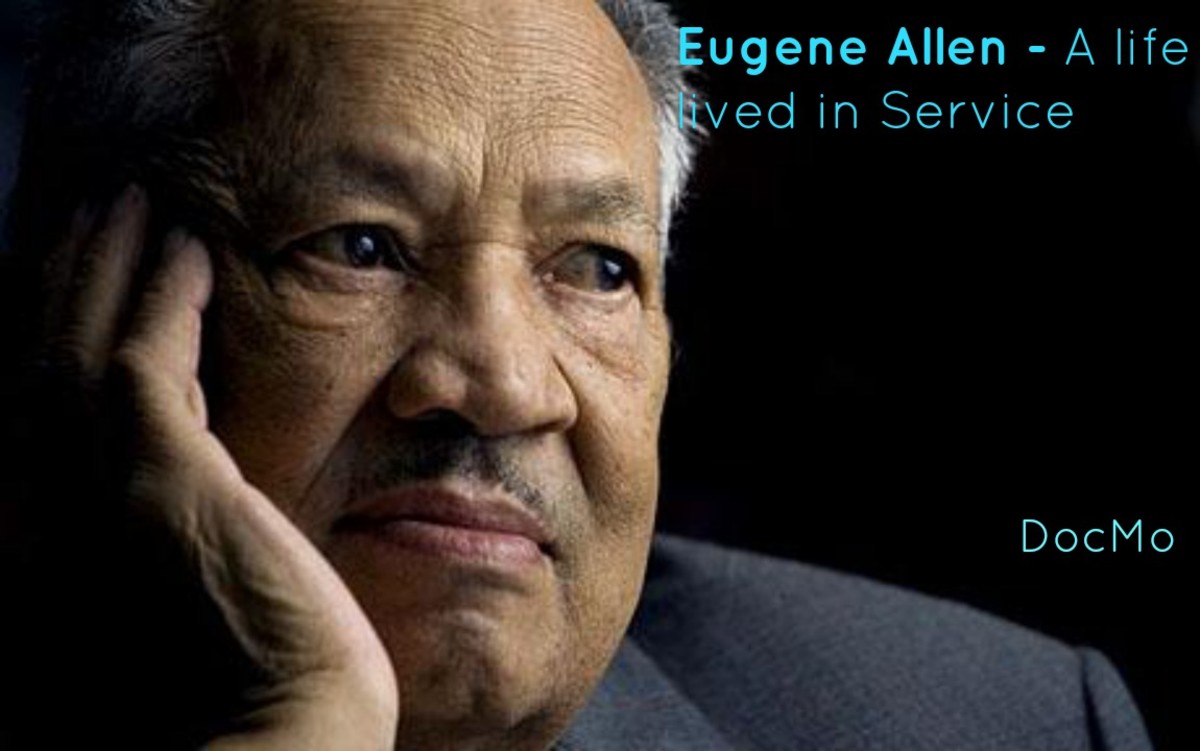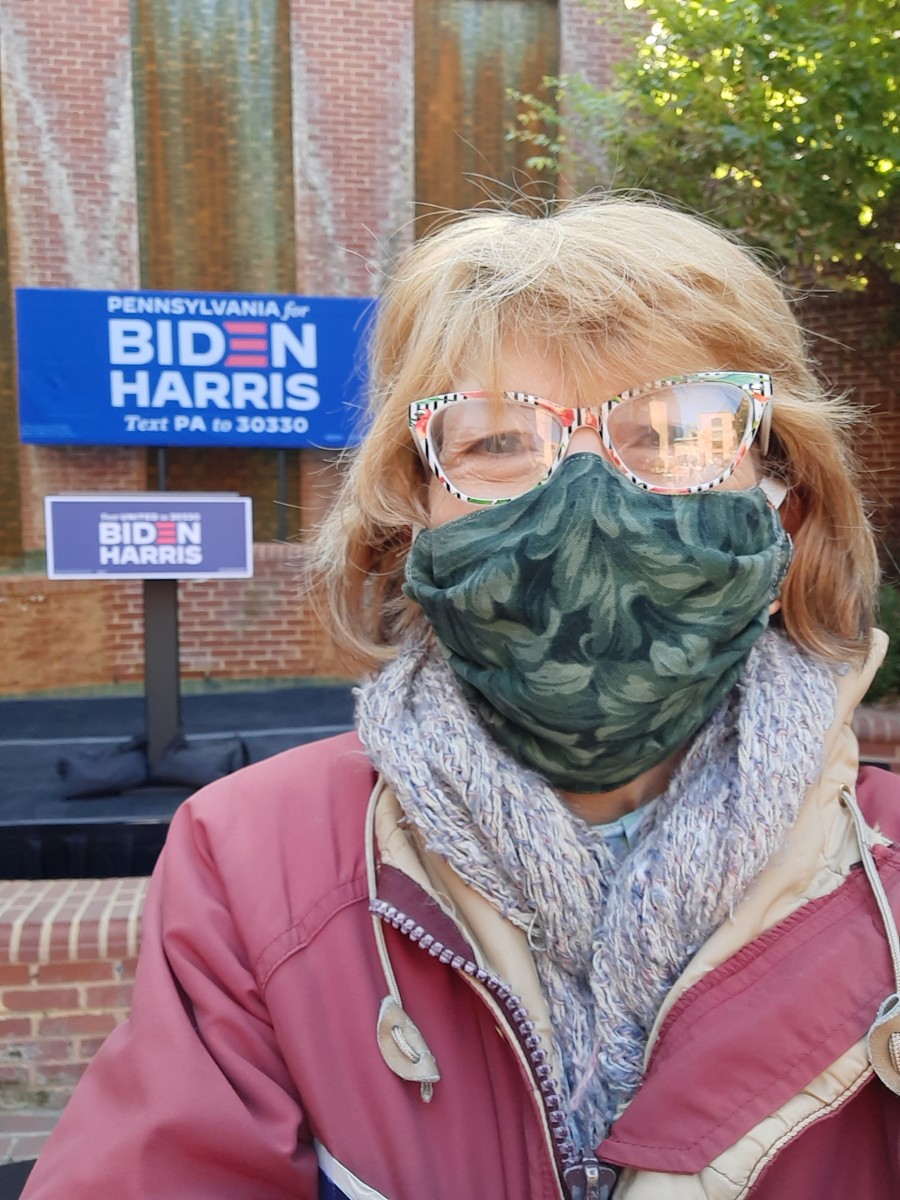The Occupy Wall Street Movement
Protesters Camped Out in Zuccoti Park as Part of the Occupy Wall Street Movement
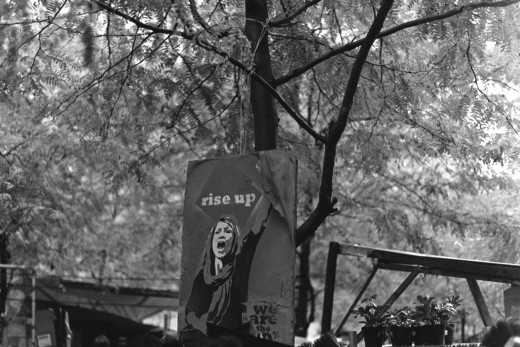
The Beginning of the Occupy Wall Street Movement
In the wake of the September 11th attacks, many activists began to rise up and protest against the injustices in America- those who had been silent for years, if not their whole lives were finally standing up and saying that they had enough of the tyrannical nature of our government.
Protests began to rise up and anti-government groups began to form in an effort to uplift the people and eventually, start a revolution ideally. As activists across the country swarmed to the streets, police brutality was at an all time high and citizens were getting arrested by the handful, if not the truckload.
In light of these events, a movement formed on September 17 of 2011 in Liberty Square in Manhattan's Financial District. “This people-powered movement has spread to over 100 cities in the United States and actions in over 1,500 cities globally” (About, Occupy Wall Street, 2013).
Powered largely by social platforms like Twitter and Facebook, Occupy Wall Street has continued to gain momentum and claims themselves to be a threat to the United States Government. The motto of the movement is “solidarity forever,” but that solidarity can only be achieved if the 1% of America who holds the majority of the wealth of the nation realizes that their greed and ignorance to the cries of the masses, combined with the injustices of the banking systems are together killing the United the States of America.
Film Crews at OWS in Zuccotti Park
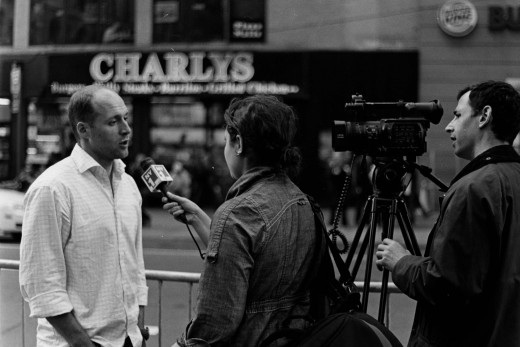
Who Made Up the Occupy Wall Street Movement?
Occupy Wall Street started out as a small grassroots organization, with a simple set of ideas.
“Aside from hoping to emulate other successful protests, five general goals have been outlined as the primary focus of Occupy Wall Street. The first two are fairly broad, asking for an increase in corporate accountability and reform in the electoral system, respectively. The remaining three objectives implore further consideration on three specific Supreme Court rulings:
- The repeal of the Santa Clara County v. Southern Pacific Railroad decision, which first gave corporations personhood and rights guaranteed by the 14th Amendment;
- The reinstatement of the Glass-Steagall act, which formerly separated investment and commercial banking, and which many economists believe would have helped prevent the financial collapse to begin with
-The repeal of the Citizens United v. Federal Election Commission decision, which legalized unlimited funding by corporations to political campaigns” (What Occupy Wall Street Means for America- The Economy in Crisis, Crawford, 2011).
The road was long for Occupy, and at the time the group was small, but what they lacked in manpower they more than made up in passion.
When the Occupy Wall Street movement began, opinions came out of the woodworks. People from all over the country, if not the globe, flocked to Zuccotti square, the home base for Occupy Wall Street, while those who watched the news felt disgraced by the protestors and the lack of patriotism they were showing our nation. The country quickly divided into Occupy Wall Street protesters, Occupy Wall Street supporters, and Occupy Wall Street opponents. The United States went from a country united in the wake of September 11th to a country divided only a few years later because of the reactions of the people to the way the government handled the attacks. People were torn. Families were torn. The younger generation tended to lean toward the Occupiers, while the older generation looked at them with disgrace, wondering where the pride in the nation went.
Occupy Nation: The OWS Documentary
Tents Where Protesters Slept During Occupy Wall Street
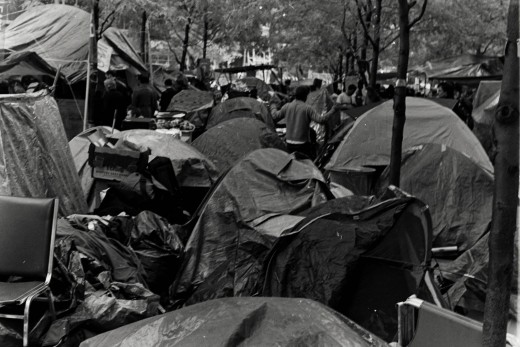
The Implications of the Occupy Wall Street Movement
The implications of the Occupy Wall Street were hard hitting and wide spread. The stock market experienced unstable days, weeks, if not months, where investors had little to no way of knowing what was going to happen to the stock exchange as a result of these protests.
Many stores near Zuccotti Park were literally forced to shut down due to lack of customer flow because of the protestors. Information leaked by the Occupy Wall Street movement revealed corruption inside the United States government, causing people who maybe were on the side of the United States at first to start to question their own government's motives.
Occupy Wall Street had a huge impact on the United States, the economy of the country, and the globe.
Knitting for Occupy Wall Steet
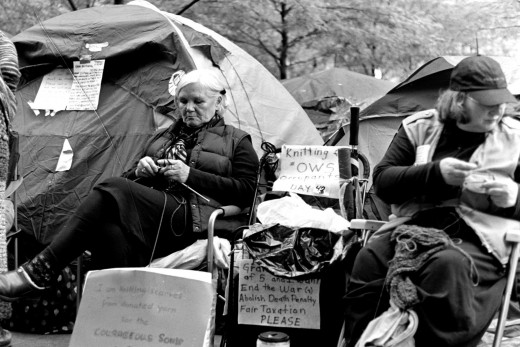
Opponents of the Occupy Wall Street Movement
People involved in the protests were looked at as rebels and anti-government conspiracy theorists, while those involved in the protests looked at those who walked right by as purely ignorant for not being able to see the evidence right in front of them. The country was torn. Protesters thought they were informing the nation of pertinent news that had been hidden from them for years, but opponents just turned their heads, reluctant to hear the cries of the masses.
Utilitarianism is a form of consequentialism, a theory where something is right or wrong if it brings the most good to the most people. Kantian ethics is a deontological ethical theory based on the view that the only intrinsically good thing is a good will. Virtue ethics on the other hand, emphasizes a person's role on their own character and the virtues that their character embodies for determining or evaluating their own particular ethical behavior.
“Contemporary theorists are often motivated by a sense of the impoverishment of modern moral traditions, for in placing primary weigh on the agent rather than the act, virtue theorists set themselves off against what are often viewed as the two options in modern ethics- utilitarianism and deontologism.” (Kant's Moral Philosophy, Stanford Encyclopedia, 2008)
One of these various ethical views generally apply to every citizen across the globe.
What type of ethics someone has can not be judged by another human being. Often it is hard to pinpoint the ethical values of one's own self. Opponents of the Occupy Wall Street movement may have looked at the protestors like they were contemporary theorists, with virtue based ideals and dreams for the country- others may look upon them like they have more modern ethics, with utilitarianism and deontologism motives. The only true person who knows their own motives, and that is someone who is truly self aware, is one's own self. It's hard to generalize the ethics of a large mass of a people, just like its hard to generalize the feelings of a nation. Only the protestors truly knew their motives and intentions for being at Zuccotti Park, walking across the Brooklyn Bridge or participating in a number of protests across the country, even the globe. Only those who didn't protest know what held them back, what stopped them from saying enough is enough, or what really didn't interest them in the first place.
99% versus the 1% - OWS Explained
Signs Covered Zuccoti Park During Occupy Wall Street
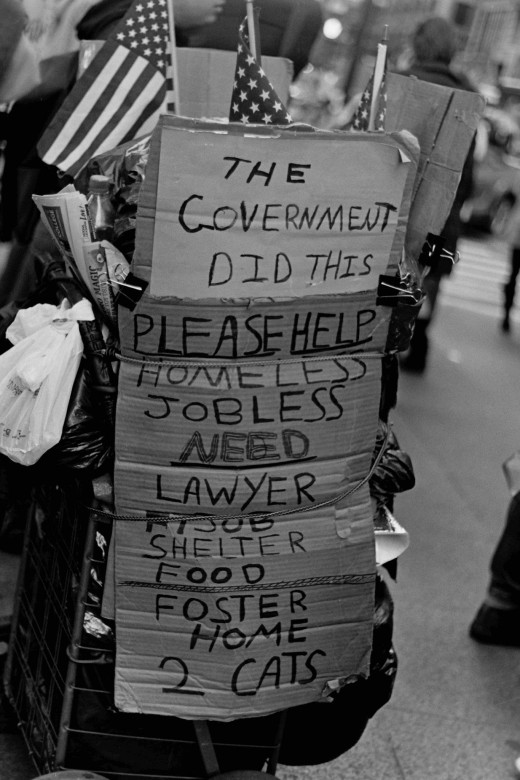
Occupy Wall Street and America's Financial Crisis
Trying to analyze someone's ethics is almost as difficult as determining who is responsible for America's economic crisis. The question is truthfully just a matter of opinion. Ask a million people and you will receive a million different answers, most of them justifiable.
If you go into a project in Harlem and ask them who caused the financial crisis, they are going to blame the bankers. If you go into the headquarters of JP Morgan Stanley, they will probably blame the Occupy Wall Street protesters and the people leeching off of government welfare. Ironic, no?
America loves to point fingers at each other if it means they can put off or ignore fixing a problem. The fact is, America is in an economic crisis. America is in a huge crisis overall. The country is divided and on the brink of a civil war! The focus shouldn't be necessarily what caused it as much as how we, as Americans, can get ourselves out of this situation.
The dividing line between Republicans and Democrats has become blinding red tape in the House, Senate and Congress. As parties bicker over minute problems, larger problems get swept under the rug.
Unless the United States of America and its citizens find some way to separate their differences, this divide will only widen, and the economic collapse will just continue. Domestic terror plots will increase, protests like those of Occupy Wall Street will spring up more and more and groups like Anonymous will continue to attack the government until it wakes up and realizes that people will no longer tolerate being ignored.
Occupy Wall Street Poll
How Do You Feel About Occupy Wall Street?
The Future of the Occupy Wall Street Movement
There is no doubt that the movement will continue and grow as long as the government ignores the demands of Occupy Wall Street. Currently, the organization has several protests scheduled and is planning a giant movement which is remaining under wraps for now, but is said will take place in Philadelphia.
Many who turned their heads to Occupy Wall Street may think that the movement evaporated, but it is quite the opposite. The movement has just decided to not broadcast all of their events as publicly as they had in the past.
Unlike some people (the US government), Occupy Wall Street learned from the mistakes of allowing the liberal media to cover their protests, so for now, those who want to be in the know have to go out of their way to keep informed. Occupy Wall Street is going nowhere. Neither are groups like Anonymous.
Not until the 1% of the government that utilizes the laws of the US constitution for their benefit finally admit their faults. We know who to blame, and we know who is at blame, and Occupy Wall Street will not cease until vengeance is served. Although groups like Occupy Wall Street are peaceful in their manner about how they try to change the way the government works, groups like Anonymous have since risen up saying they will take more drastic action if they fill the need is there- and they have. Anonymous has hacked government databases, it has also targeted major surveillance companies.
The goal of groups like Anonymous are to crack down on censorship- on the internet, as well as in the real world. Occupy Wall Street has stated that they are not going anywhere until they see action on the part of the United States government.
This is the declaration on the Occupy Wall Street’s main website:
“As we gather together in solidarity to express a feeling of mass injustice, we must not lose sight of what brought us together. We write so that all people who feel wronged by the corporate forces of the world can know that we are your allies.
As one people, united, we acknowledge the reality: that the future of the human race requires the cooperation of its members; that our system must protect our rights, and upon corruption of that system, it is up to the individuals to protect their own rights, and those of their neighbors; that a democratic government derives its just power from the people, but corporations do not seek consent to extract wealth from the people and the Earth; and that no true democracy is attainable when the process is determined by economic power.
To the people of the world,
We, the New York City General Assembly occupying Wall Street in Liberty Square, urge you to assert your power.
Exercise your right to peaceably assemble; occupy public space; create a process to address the problems we face, and generate solutions accessible to everyone.
To all communities that take action and form groups in the spirit of direct democracy, we offer support and all of the resources at our disposal. Join us and make your voices heard!” (About: Occupy Wall Street, OccupyWallStreet.com, 2013)
From the sound of that, I don’t think they are going anywhere any time soon.
© 2014 Kathleen Odenthal


